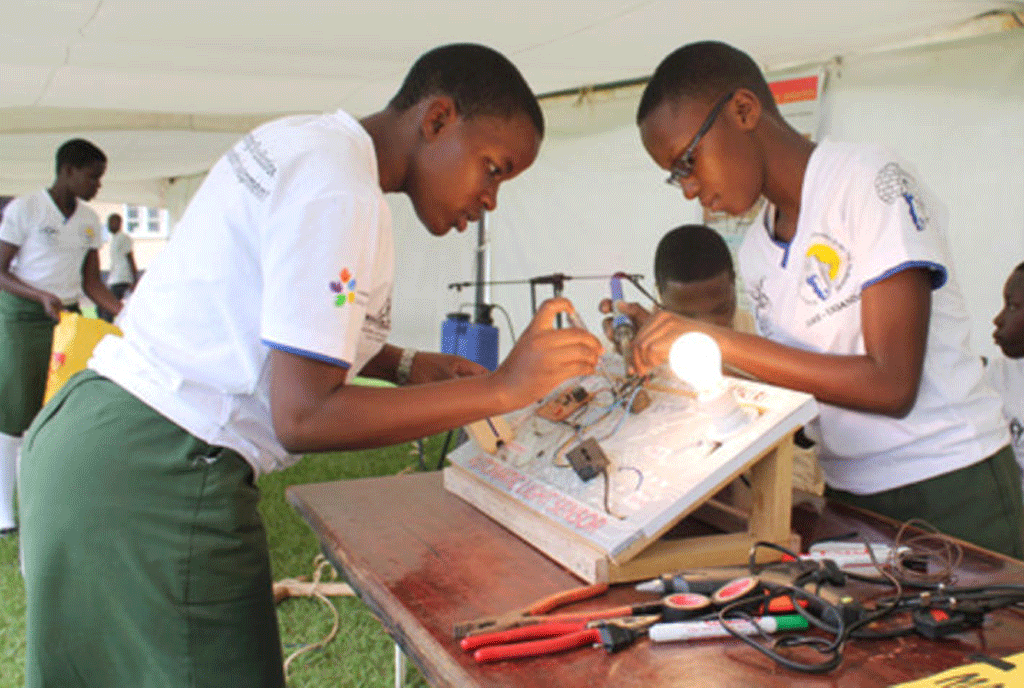Prime
Primary teachers launch practical way to teach, learn science subjects

Students doing a physics practical.
What you need to know:
- The inventive involves creating lifelike models of body organs and other science equipment by collaborating with artists to provide hands-on learning experiences
In a move to boost science education in primary schools, a group of teachers has launched a more practical and engaging method of teaching and learning the subject.
The inventive involves creating lifelike models of body organs and other science equipment by collaborating with artists to provide hands-on learning experiences.
The team of passionate educators seeks to address the common challenges of teaching science at the primary level where theoretical concepts often seem abstract and distant to the young minds.
By incorporating practical elements into their teaching, the teachers aim to foster a deeper understanding and appreciation of science among their pupils.
Central to this initiative is the creation of realistic models of body organs and other scientific equipment by collaborating with local artists. These well-crafted models serve as invaluable teaching aids, allowing students to examine and explore scientific concepts in a tangible and interactive manner.
During classroom sessions, teachers organise students into groups and distribute the models. They provide each pupil with the opportunity for a close-up examination as the lesson unfolds. This hands-on approach not only enhances comprehension but also encourages active participation and curiosity among the students.
Moreover, non-governmental organisations (NGOs) such as Save the Children have recognised the usefulness of the initiative, and have shown keen interest in supporting the move.
They have stepped in to buy these models, especially for schools under the Universal Primary Education Programme, where resources for practical learning are often limited.
Mr Ssemaganda James, a primary science teacher at St Anne Primary School Naddangira in Wakiso District, said: “By incorporating practical learning experiences into our classrooms, we aim to instill a lifelong love for science and inspire the next generation of innovators and problem-solvers.” he said.
Mr Musa Najib Ssaabavuma, another science teacher at another UPE school, Lwadda Primary School in Matugga, Wakiso District, admits that the method “has minimised the laborious task of drawing diagrams on the chalkboard. Last year, our pilot Primary Seven group showed indicators that this is the way to go because the school results improved greatly.”
Students too are appreciative of the model saying the colours on the models help them remember better.
Mr Kelly Adrias Owayezu, one of the innovators at the Ntinda-based workshop, said their major challenge is space and manpower, but he said they have prospects of buying a bigger piece of land and employing machines to increase productivity due to the high demand.
The initiative led by primary science teachers to introduce practical learning experiences into classrooms marks a significant step in enhancing science education at the primary level.
With the support of artists, NGOs, and passionate educators, this initiative promises to bridge the gap between theory and practice, and empower young learners to explore and understand the wonders of science firsthand.
As efforts to expand this initiative gain momentum, the landscape of primary science education stands poised for a transformative shift towards greater engagement and learning outcomes.
Power of collaboration
The success of the learning initiative underscores the power of collaboration and innovation in transforming education. As these dedicated teachers under the River Flow International umbrella continue to champion practical learning in primary science education, the ripple effects are expected to reach far beyond the confines of the classroom, shaping the future of science education for years to come.



